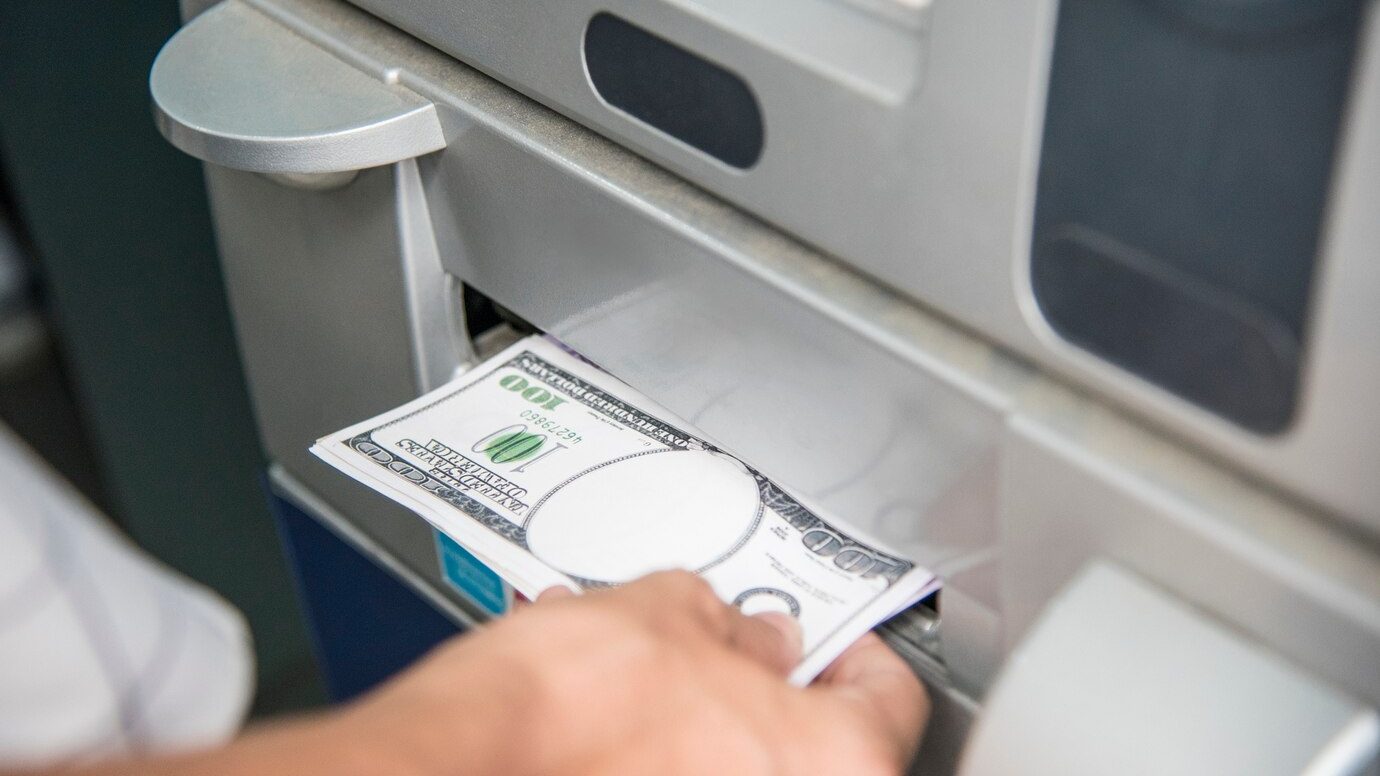Anúncios

When delving into the world of finance, it’s essential to understand what is a deposit.
In simple terms, a deposit refers to money placed into a financial institution for safekeeping and future use.
This article explores various facets of deposits, from definitions and types to the importance in banking, making deposits, interest rates, and safety measures.
Until the end of this guide, you’ll have a clear understanding of how deposits function and their significance in your financial life.
Definition and Types of Deposits
Understanding the Basic Definition
A deposit is an amount of money placed into a financial institution, such as a bank or credit union, for safekeeping. Deposits can be made into various types of accounts including savings, checking, or fixed accounts. The primary purpose is to secure funds while earning interest or facilitating transactions. Deposits are fundamental to the banking ecosystem, enabling financial institutions to lend money and provide various financial services.
Different Types of Deposits
Deposits come in several forms, each serving distinct financial goals. Here are the most common types:
- Savings Deposits: Typically held in savings accounts, these deposits earn interest over time, making them suitable for long-term savings.
- Checking Deposits: Held in checking accounts, these deposits are intended for daily transactions and do not usually earn interest.
- Fixed Deposits: Also known as time deposits, these require the depositor to lock the funds for a specific period in exchange for a higher interest rate.
- Recurring Deposits: Regular, fixed contributions are made into an account over a specified period, earning interest similar to fixed deposits.
Specialized Deposit Types
Beyond the standard categories, there are specialized deposit types tailored for specific purposes:
- Demand Deposits: These allow for immediate withdrawal without penalties, commonly used in checking accounts.
- Term Deposits: Funds are deposited for a fixed term and withdrawing before maturity incurs a penalty.
- Call Deposits: Financial instruments with a set interest rate and no fixed maturity, offering higher liquidity.
Importance of Deposits in Banking
Foundation of Financial Institutions
Deposits are the cornerstone of any banking system. By collecting deposits from individuals and businesses, banks can aggregate substantial amounts of capital. This capital is then used for providing loans, mortgages, and other credit facilities which are crucial for economic development. The funds deposited provide liquidity to the bank, enabling it to operate smoothly and extend services to more clients.
Supporting Economic Growth
Banks use deposits to extend credit to consumers and businesses, fueling economic activity. When individuals deposit their money in a bank, it becomes available for loans to others. These loans can finance startups, expand existing businesses, and support consumption, all of which contribute to economic growth. For example, a small business loan funded by deposits can help a local business expand, creating jobs and boosting the local economy.
Interest Earnings and Customer Benefits
Deposits offer benefits not only to banks but also to depositors. Through interest earnings, depositors can grow their savings over time. Banks compete to offer attractive interest rates to attract more deposits, resulting in better deals for customers. Moreover, insured deposits provide a safe place for individuals to keep their money, knowing that it is protected up to a certain amount by the government or other insurance mechanisms, further encouraging saving behavior.
How to Make a Deposit
Choosing the Right Account
The first step in making a deposit is selecting the appropriate account type. Different accounts serve various purposes, whether it is for regular transactions or long-term savings. For instance, choose a checking account for daily expenses and a savings account for preserving funds and earning interest. Consulting with a banking professional can help determine which account aligns with your financial goals.
Methods of Depositing Funds
Deposits can be made through multiple channels:
- In-Person Deposits: Visit a bank branch to deposit cash or checks directly with a teller. This method provides immediate confirmation of the deposit.
- ATM Deposits: Use an Automated Teller Machine to deposit cash or checks outside of banking hours. ATMs offer convenience and accessibility for frequent deposits.
- Electronic Transfers: Transfer money electronically from one bank account to another using online banking platforms. Electronic deposits are fast and efficient, particularly for recurring transactions.
- Mobile Deposits: Utilize a bank’s mobile app to deposit checks by capturing their images through your smartphone. This method is increasingly popular for its ease and speed.
Steps to Ensure a Successful Deposit
To ensure your deposit is processed correctly:
- Fill Out Deposit Slips Accurately: When depositing in person, always complete the deposit slip with precise details, including account number, deposit amount, and breakdown of cash and checks.
- Double-Check Check Endorsements: Ensure that all checks are properly endorsed with your signature. Missing endorsements can delay the processing.
- Retain Receipt of Deposit: Whether depositing via ATM, in-person, or electronically, always retain proof of deposit. This can resolve any discrepancies that may arise later.
Insurance and Safety of Deposits
Understanding What Is A Deposit Insurance
Deposit insurance is a critical safety feature provided by most financial institutions to protect depositors’ money. In the United States, the Federal Deposit Insurance Corporation (FDIC) insures deposits up to $250,000 per depositor, per insured bank, for each account ownership category. This insurance coverage ensures that even if a bank fails, depositors will not lose their insured funds. This fosters trust and stability within the banking system, encouraging more people to deposit their money.
How Insurance Protects Depositors
Deposit insurance works by creating a safety net for individual and business depositors. The insured amount covers various types of deposit accounts, including checking, savings, money market deposit accounts, and certificates of deposit (CDs). In the event of a bank failure, the insurance agency steps in to reimburse depositors, typically within a few business days. This not only protects depositor funds but also contributes to maintaining public confidence in the banking system.
Ensuring Security of Deposits
Besides deposit insurance, banks implement several measures to ensure the safety and security of depositor funds:
- Regulatory Oversight: Banks are subject to stringent regulations and regular audits to ensure they operate safely and soundly. Regulatory bodies monitor banks’ health and take corrective actions when necessary.
- Strong Authentication Methods: Modern banks employ advanced security measures, such as multi-factor authentication (MFA) and encryption, to protect against unauthorized access to accounts.
- Financial Reporting: To maintain transparency and accountability, banks regularly publish their financial statements and performance reports. This enables depositors to assess the bank’s financial health.
Interest Rates and Deposits
Understanding How Interest Rates Work
Interest rates play a crucial role in the dynamics of deposits. Banks offer interest on deposits as a way to encourage saving. The rate is typically expressed as an annual percentage yield (APY) and can vary based on the type of deposit account, such as savings or fixed deposits. High-interest rates are a key attraction for depositors who aim to grow their funds over time. It’s important to understand how compounding works, as interest can be compounded daily, monthly, or annually, influencing the overall returns.
Factors Influencing Interest Rates
Several factors determine the interest rates offered on deposits:
- Market Conditions: Economic factors, such as inflation and central bank policies, significantly affect interest rates. During periods of high inflation, central banks may raise rates to control spending.
- Type of Deposit: Generally, fixed deposits or term deposits offer higher interest rates compared to regular savings accounts because they require the funds to be locked in for a specific period.
- Bank Policies: Individual banks set their interest rates based on their liquidity needs and strategic goals. Competitive pressures also influence the rates they offer to attract deposits.
Maximizing Your Interest Earnings
To make the most of your deposits:
- Shop Around: Compare interest rates offered by different banks. Some online banks offer higher rates due to lower overhead costs.
- Consider Long-Term Deposits: If you can lock your money for a longer period, opt for fixed deposits with higher interest rates.
- Watch for Promotional Rates: Banks sometimes offer promotional rates for new accounts or large deposits. Take advantage of these offers but be aware of the terms and conditions.
Insurance and Safety of Deposits
Understanding What Is a Deposit Insurance
Deposit insurance is a critical safety feature provided by most financial institutions to protect depositors’ money. In the United States, the Federal Deposit Insurance Corporation (FDIC) insures deposits up to $250,000 per depositor, per insured bank, for each account ownership category. This insurance coverage ensures that even if a bank fails, depositors will not lose their insured funds. This fosters trust and stability within the banking system, encouraging more people to deposit their money.
How Insurance Protects Depositors
Deposit insurance works by creating a safety net for individual and business depositors. The insured amount covers various types of deposit accounts, including checking, savings, money market deposit accounts, and certificates of deposit (CDs). In the event of a bank failure, the insurance agency steps in to reimburse depositors, typically within a few business days. This not only protects depositor funds but also contributes to maintaining public confidence in the banking system.
Ensuring Security of Deposits
Besides deposit insurance, banks implement several measures to ensure the safety and security of depositor funds:
- Regulatory Oversight: Banks are subject to stringent regulations and regular audits to ensure they operate safely and soundly. Regulatory bodies monitor banks’ health and take corrective actions when necessary.
- Strong Authentication Methods: Modern banks employ advanced security measures, such as multi-factor authentication (MFA) and encryption, to protect against unauthorized access to accounts.
- Financial Reporting: To maintain transparency and accountability, banks regularly publish their financial statements and performance reports. This enables depositors to assess the bank’s financial health.
Understanding what is a deposit and its various aspects can significantly enhance your financial literacy and decision-making. From knowing the different types of deposits and their roles in the banking system to grasping the importance of interest rates and safety measures, each element is crucial for managing your finances effectively.
Deposits not only provide a secure place for your funds but also offer opportunities for growth through interest earnings. Always be informed about your deposit insurance and take advantage of the best practices for depositing funds securely.
By leveraging this knowledge, you can better navigate the banking landscape and ensure your money works efficiently for you.
Frequently Asked Questions about Deposits in Banking
What is a deposit?
A deposit is an amount of money placed into a financial institution, such as a bank, for safekeeping. Deposits can be made into various types of accounts like savings, checking, or fixed accounts.
What are the types of deposits?
Common types of deposits include savings deposits, checking deposits, fixed deposits, and recurring deposits. Each type serves different financial purposes, from daily transactions to long-term savings.
Why are deposits important in banking?
Deposits provide banks with the capital needed to offer loans and other financial services. They are essential for a bank’s liquidity and overall economic growth as they enable lending and investment activities.
How can I make a deposit?
You can make a deposit in several ways, including in-person at a bank, through ATMs, via electronic transfers, and using mobile banking apps. Each method offers unique conveniences and features.
How do interest rates affect my deposits?
Interest rates determine how much money your deposits will earn over time. Higher interest rates lead to greater returns on savings and fixed deposits. Factors such as market conditions and bank policies influence these rates.
What is deposit insurance?
Deposit insurance protects your money in the event of a bank failure. In the United States, the FDIC insures deposits up to $250,000 per depositor, per bank, ensuring that you do not lose your insured funds.
Are my deposits safe?
Yes, deposits are generally safe due to deposit insurance provided by agencies like the FDIC. Additionally, banks implement regulatory oversight, strong authentication methods, and transparent financial reporting to ensure the security of depositor funds.


